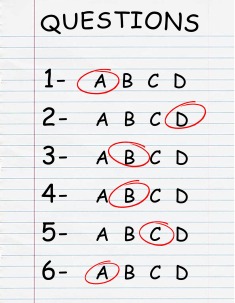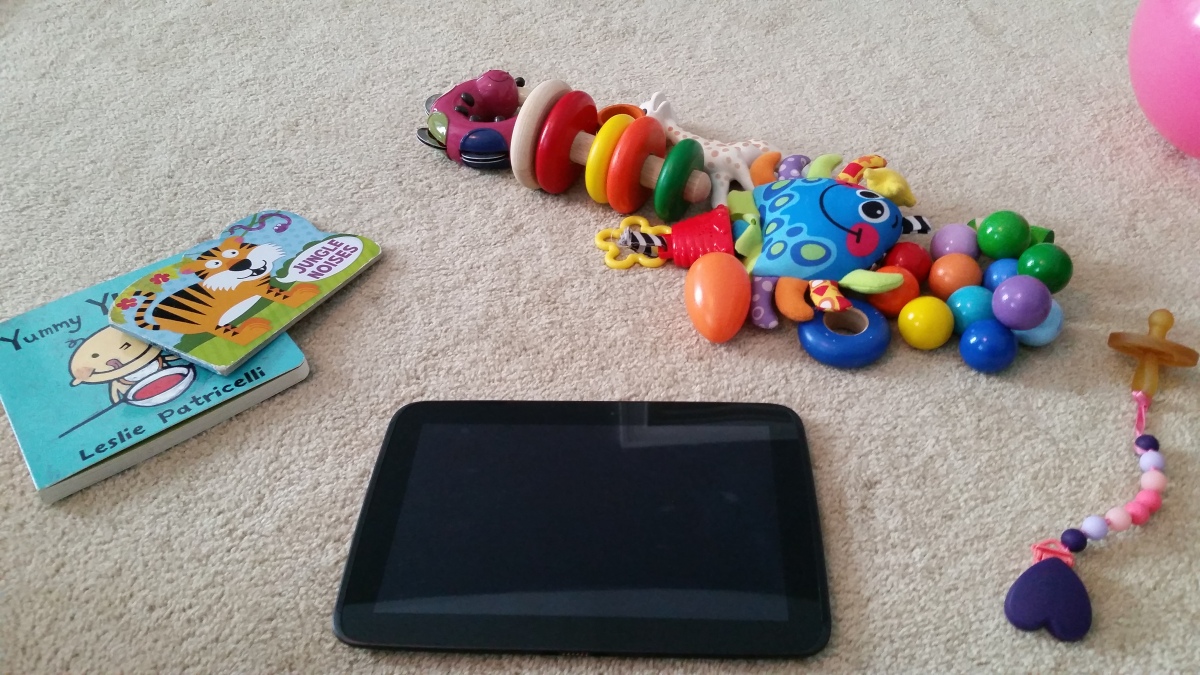This is a follow-up post regarding a shooting in a Charlotte, NC school on the morning of October 29th, 2018. Read the original thoughts here. If you or someone you know has been affected by the ripples of a school shooting, please feel free to use this resource to help you and others understand the thoughts and feelings you may be experiencing.
After a traumatic incident, there’s a distinct ripple created, made up of those affected. Imagine dropping a rock in a pond – the impact is mostly felt in the center, and as the waves ripple outwards, in some small way, the whole pond is affected. From the inside, outwards, the trauma goes from being immediate, more likely to affect the person’s mental health, and more impactful on day to day life, to less so, but still leaving an imprint on them.
I want to use yesterday’s shooting at Butler High to illustrate how many people are truly affected by events like this, and how it may go deeper than you might initially expect. Processing the magnitude of this event kept me up all night. The fatal interaction between two 16-year-old boys affected hundreds of thousands of people on different levels. Maybe millions. To be clear, this is not a “grief ranking”, or to decide who’s suffering more. This is simply my interpretation of how trauma can spread.
Center: Those directly involved – in this case, Jatwan Craig Cuffiem, the shooter, and Bobby McKeithen, the victim. From here on out, I will use their names instead of the labels. Bobby is gone. And Jatwan remains. Remember, we’re talking about a boy who presumably has never killed before. Yes, this was premeditated, and yes, we’ve now heard reports that this was a result of bullying and self-protection, but Jatwan’s now taken a life, which is more than many of us can say (thankfully). Unless there’s a serious pathology here, this boy is probably spiraling, wondering what’s next for him, replaying the scene again, and again, and again. He’s been charged with 1st-degree murder, and is likely terrified, and hopeless, and I wouldn’t know what to tell him myself at this point.
First ripple: Those who came in direct contact with those involved during or immediately after the event. Anyone who may have talked to Jatwan when they noticed the gun. It was in the middle of a fight, so maybe it was all too fast. Anyone who may have had to talk or physically take the gun out of Jatwan’s hand. Anyone who had to administer first aid or comfort to Bobby, including first responders. Any other students or teachers close enough to get blood on them. These people have lived a traumatic shared experience, seared into their memories by terror. They need counseling, time, space, and for those closest to them to understand what they’re going through. CMS has given Butler High the day off today, and an optional teacher workday for Wednesday. Yesterday, parents were eventually allowed to take their students home. CMS SHOULD NOT have had the remaining students go back to class. In fact, by moving around the halls, they were disrupting an active crime scene. THEY SHOULD have had everyone gather in places where they could a) take attendance, and b) provide counseling services until the end of the day, or when parents could pick up.
Second ripple: Family and close friends of both parties. Bobby’s family suddenly went from having a son/brother/cousin in their lives, to not. Jatwan’s has to deal with the reality of what he’s done, with the media breathing down their necks, and angry people saying hurtful things, and to try to live their lives not knowing what’s going to happen to the boy they love, who has done something unthinkable. Both families got the call they will never forget. The call that changed their lives forever. It’s best to know that nothing you can say can take away their pain, and that’s not your fault or theirs, it’s just reality. Being there for them is all that you can do.
Third ripple: Anyone in the vicinity at the time, who heard the gunshot and the screams. REALITY – we live in a time and place where we have active shooter protocols to follow in schools, that are practiced regularly. ALSO REALITY – this shooting took place in a crowded hallway before classes, and chaos ensued, so protocol like hiding under desks and blocking doors is not applicable. Yes, protocol kicked in after the fact, but if you were a student or faculty member in that school that morning, and you heard that gun go off, your fight or flight response kicked in and you likely had a million thoughts run through your head. “Was that a gun? Have I been shot? Who’s been shot? Are they dead? Who has the gun? There’s so much screaming! Are they going to shoot again? Which direction did it come from? Which direction should I run? Did I just wet myself (don’t laugh, sometimes the answer is yes, and that’s nothing to be ashamed of, and sometimes it’s a quick onset of sweat, also nothing to be ashamed of)? What’s going on? Is it an outsider? My ears are ringing. Do I have to protect my students? Is the shooter a student? Is the shooter one of my coworkers?” These people need to be given time and support to come down from their adrenaline and cortisol rush. CMS has counseling on hand for those from Butler High who need it. It’s not like the range; there are no earplugs or noise cancelling earmuffs, and no warning. This can affect their normal routine for weeks or months, and without help, years or indefinitely.
Fourth ripple: Any school faculty/staff or community members who had close interaction with Bobby or Jatwan. These people are likely asking themselves a lot of questions about what they could have seen or heard recently from either that indicated that something like this might happen. What could I have done? What did I miss? They need time and lenience to process these questions, and understanding as they do so.
Fifth ripple: The rest of the school. You didn’t know either of the students involved personally. Maybe all you heard was a distant bang, and thought it was someone hitting a locker. Maybe you were outside. Maybe you weren’t even at school yet. But it happened at your school, and you have to go back there. “Why did it happen? Am I safe? Will it happen again? What happens now? Will someone want revenge? I’m scared, but do I have a right to be scared? I’m sad, but I didn’t know that kid, so do I have a right to be sad?” You absolutely have a right to feel sad and scared and angry and betrayed and however you want to feel. The place you spend the majority of your life was just violated.
Sixth ripple: First responders and mental/physical health workers who had or will have contact with anyone involved. You deal with high stress situations every day, but this was especially disturbing. You may have been a police officer who helped bring down the chaos outside, but didn’t see the inside of the school. You may be a therapist or counselor or other healer who hears the second-hand accounts from those directly involved. You may have been a doctor or nurse or other staff member on hand in the hospital where they took Bobby. You may have had to escort Jatwan to a police car, then a holding cell, and only you know what mental/emotional condition he was in at that time. This is your job, but it still stings. It can still haunt you, and you do have the right to grieve it and process it. You might have the urge to hug your kid. You might feel like this is the time to have a serious talk with your kid.
Seventh ripple: The families of the students and faculty that go to that school. You’re at work, or at home, or just out and about, and something happens. Maybe you get a call or a text or an email, maybe you saw the CMS Facebook or Twitter alert posts. With today’s technology in every teen’s hand, most parents probably got a text from their kids right after it happened. And does any teen have all the info to give Mom or Dad in a shaky-handed text, or frantic phone call immediately after a traumatic indecent? Nope. Yet another ring of folks who’ve had their stress hormones shoot through the roof, except they didn’t hear the gunshot, they just try to process the news, and figure out what to do next. Can you get off of work? Maybe. Maybe not. Do you need to? If your kid is ok, then maybe it’s best you stay at work and not lose pay, right? But is your kid ok? What happened? They’re totally hysterical, but they’re teens so they’re always melodramatic, right? It’s on the news??? Can anyone even cover you? Will your manager let you leave? You really just kinda want to hug your kid, but that’s not something you feel like you can tell your boss (except it’s a totally normal feeling, so don’t worry about it). There are lots of thoughts and feelings swirling around. That’s understandable.
Eighth ripple: Anyone who is a faculty member or student at a local school. The Charlotte-Mecklenburg School System as a community has been rocked by a tragedy. There are likely friends and family of both Jatwan and Bobby in other schools. They’re hurting. Every school staff and faculty member in CMS is questioning their paycheck and their job requirements. Is this what school has turned into? A battleground? You care about your students, so you’re probably scared for them, as well as your fellow CMS members. You’re processing, and that’s normal.
Ninth ripple: The local community at large. This happened in OUR community. It’s tragic. You might have a friend or family member in a local school system – adult or student. You might not know anyone directly or even indirectly involved, but you might remember the time a tragedy happened at your high school and it went on lockdown, and you’ll never forget the chaos and the aftermath of that shared, traumatic event.
Tenth ripple: Anyone across the country who heard the news and works in any kind of school or has a family member in any kind of school. Those currently involved in the high school scene are able to put it into direct context: “What if it’s me or my kid or my school next?” or “My mom works at a high school, is she safe?” But this marks the 22nd school shooting resulting in a fatality or injury since the start of 2018 in America. This is becoming normalized. The students at Butler High were literally told an hour after a shooting in their school to “Keep Calm and Carry On”. The nation is scared.
Eleventh ripple: Humans with friends, family, or access to news outlets all over the world. Through sharing stories on social media, to 24hr news cycles at international airports, to a phone call across an ocean from a grieving friend or family member who knew either Bobby or Jatwan – the news spreads, and with it, so goes the sadness. The general sadness for the loss of a human life, regardless of whether we knew them personally, is a good thing. We need more of it. When we become numb to this human suffering, we start to disconnect.
What’s harder than finding and sharing sympathy or empathy for a victim you didn’t know? Finding and sharing sympathy or empathy for a perpetrator you didn’t know. What made Jatwan think this was his only option? How did he get to this point? Who, if anyone, could have intervened before it got to this? And how do we acknowledge these missed steps without pointing blame?
The same questions are asked when someone commits suicide, but as soon as someone turns their rage outwards instead of inwards, we’re less likely to accept their explanations. We shut our ears off. We don’t want “excuses”. Ironically, those who turn their rage outward instead of inward are the only ones who can answer these questions, but we’re so angry at them that we don’t want to hear it. The world cries as we ponder what to do next.
Listen. Listen to everyone with an open mind. You don’t have to listen to them right now. You don’t have to love them. You don’t have to like them. You don’t have to agree with them. You don’t have to forgive them. You don’t even have to keep listening to them, but you must listen at least once, and listen to learn, not to reply or rebut, just to learn about another human experience.










